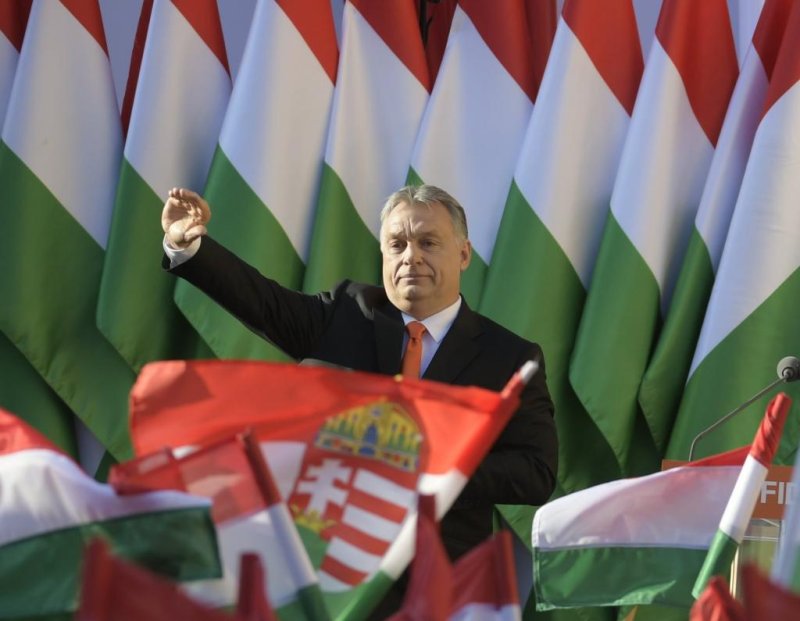Hungarian Prime Minister Viktor Orban waves as he attends the final electoral rally of his Fidesz party in Szekesfehervar, Hungary, on April 6. On Sunday, Orban won a third consecutive term and a super majority in Parliament. Photo by Zsolt Szigetvary/EPA-EFE
April 8 (UPI) -- Hungarian Prime Minister Viktor Orbán was projected to win a fourth consecutive term Sunday as his Fidesz party won 133 out of 199 Parliament seats in nationwide elections.
Hungarian voters handed a super majority to Orbán, who campaigned on a platform that was skeptical of the European Union and opposed to immigration.
On thousands of billboards across the country, the Fidesz party put up a campaign ad that included a long line of migrants with a picture of a large "STOP" sign, reinforcing a major issue of concern for voters and highlighting the party's hardline stance against more open immigration policies advocated by some EU leaders.
"We scored a decisive victory," Orbán told his supporters. "We have received an opportunity, created an opportunity to be able to defend Hungary."
The decisive win was seen as a blow to Hungary's other parties, leading to the resignations of the chairman of the far-right Jobbik party, as well as the president of the Socialist party.
Orbán and Fidesz's victory was praised by right-wing leaders across Europe, including the France's Marine Le Pen and Netherlands' Geert Wilders.
Meanwhile, Orbán's opponents fear his win will put too much power in the hands of a leader who they accuse of trying to undermine democratic institutions.
"If he wins a two-thirds majority, it will lead to the complete collapse of the opposition and a very dangerous scenario for the future of Hungary," said Dr. Tóth Csaba, an analyst at the liberal Republikon Institute, told The New York Times.















